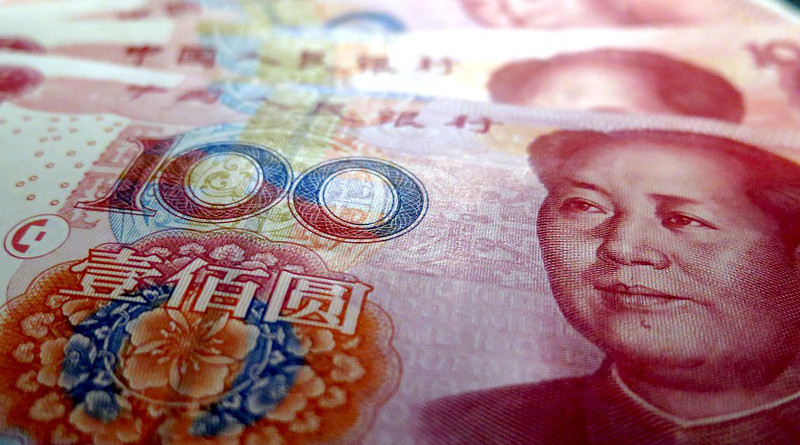The Fear Of Managing Chinese Investment – Analysis
The trend in advanced economies of closing up to Chinese foreign investment has accelerated during the economic downturn from the coronavirus pandemic.
By Shiro Armstrong and Adam Triggs*
There is a fear among Australian, Japanese, European and other policymakers that cashed up Chinese companies will scoop up their distressed assets in a fire sale and take ownership of critical infrastructure, data and other national assets.
Direct investment from other countries will also be discouraged, with technical and political difficulties in creating China-specific barriers.
How little faith these countries have in their own institutions and regulatory authorities.
The choice they are making is to let assets devalue or disappear in the name of security, sitting back as jobs are lost and capital is destroyed. Locals are forced to consume less so they can save more, facing higher interest rates and lower living standards as a result. That may make some in the community feel safer but it makes their countries less secure.
Economic security is being misunderstood and compromised. A better approach is to welcome Chinese and foreign capital and the increased living standards it provides, and regulate its behaviour like any other firm, domestic or foreign. If there are gaps in regulations or the institutions are weak, the answer is to strengthen laws and their enforcement.
The hurdles for private investment in military or defence sectors is already very high, and close to insurmountable for private investment from a non-ally. That makes sense. There are circumstances when foreign ownership creates risks that cannot be managed sensibly. But those are the rare cases.
Concerns about foreign owned or controlled companies exploiting labour standards, damaging the environment, using transfer pricing or tax shifting, and leaking data to a foreign government can and should be addressed with domestic laws. Some of those laws include nationalising assets if laws are broken or security compromised.
The United States appears to still have faith in its free market ways backed up by strong litigation but is leading efforts to restrict Chinese investment in key areas of technology as part of its strategic competition with China.
Forgoing Chinese investment is lose-lose and makes countries less secure.
China is the world’s second largest economy and much of its capital is looking for higher returns abroad. Its companies are still relatively new to investing outside China and learning to operate in different business environments with different rules, and many have lost large fortunes in the process.
Those losses do not automatically mean that Chinese investments place strategic or state interests above commercial ones, or that they have an investment time frame beyond companies elsewhere. Usually it just means the investment failed and the asset can be bought back and put to productive use more cheaply.
Chinese companies investing and operating in Australia, Japan, Canada and other advanced economies have the added benefit of bringing transparency to the businesses and complying with best practice regulations in host countries. Some companies will take those lessons home.
That may not seem like a priority for recipients of Chinese investment but when shut out of advanced economies, Chinese companies will be doing their learning in countries where governance and institutions are weak.
That creates a productive agenda for advanced economies to manage Belt and Road Initiative infrastructure investment as well: to help improve governance, institutions and capacity to regulate in developing countries.
There is also an important peace dividend from foreign investment. Foreign investment creates foreign stakeholders in the health of an economy.
A foreign government is much less likely to enact policies that hurt the other country if they have a more direct stake in it. Seasonal Indonesian tariffs on imports of Australian beef stopped once Indonesian businesses invested in Australian cattle farms.
Sharing of data with another government, compromising infrastructure and creating security vulnerabilities may be easier to do with ownership of an asset, but can also be done remotely, without ownership. Governments need to be clear about when ownership matters and how the risks can be mitigated.
Those activities are illegal and should be policed no matter the owner of the asset. If the owner is Chinese or foreign, the risk is shared, if not internalised, by them. Jail time and expropriation of assets are significant disincentives that would not exist without ownership.
The screening and regulation of foreign investment in advanced economies had already started to tighten significantly before COVID-19. Further shutting economies off from foreign capital will hamper economic recovery from the pandemic.
Understanding when foreign ownership matters, and why, is important in sorting out how to manage Chinese and other investment to reap the benefits while managing the risks.
*About the authors:
- Shiro Armstrong is Director of the Asian Bureau of Economic Research (ABER) and Director of the Australia–Japan Research Centre, The Australian National University.
- Adam Triggs is Director of Research of the Asian Bureau of Economic Research (ABER), ANU, and a non-resident fellow in the Global Economy and Development program at the Brookings Institution.
Source: This article was published at East Asia Forum. A version of this article originally appears here in South China Morning Post.

